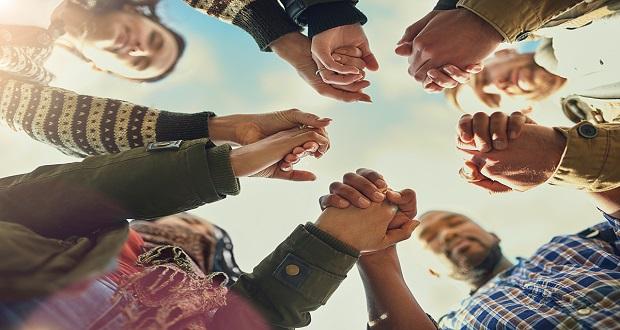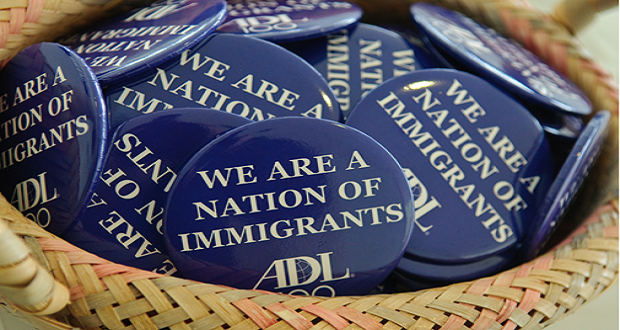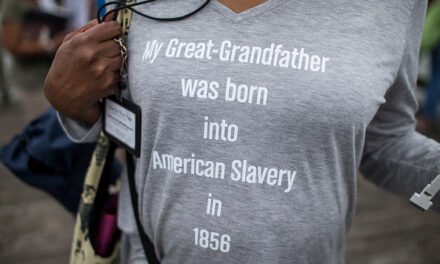
Doing ‘the work’ is first and foremost about people. It’s about, as we’ve shared in the past few weeks, breaking barriers and creating opportunities for people to see themselves and their futures as boundless in the face of inequitable systems. It’s about breaking down those systems and creating space for people to thrive. But doing ‘the work’ is not just about individuals – it’s about relationships. These inequitable systems can harm relationships – between individuals, between people and their communities, and across different communities. As we break down oppressive systems, we have to restore the relationships they have harmed. Doing ‘the work’ of restoring those relationships often requires that we notice and affirm people and communities who have historically gone unnoticed and excluded.
This week’s spotlight is on three organizations tackling one of the systems and structures in our society that continues to create barriers for marginalized folks and render people invisible and excluded: the school to prison pipeline and its long-term effects on students and communities. According to the ACLU, the school to prison pipeline is “the disturbing national trend wherein children are funneled out of public schools and into the juvenile and criminal justice systems. Many of these children have learning disabilities or histories of poverty, abuse, or neglect, and would benefit from additional educational and counseling services. Instead, they are isolated, punished, and pushed out.” Students of color are particularly vulnerable due to a combination of bias, “zero-tolerance” policies, police presence in schools, etc.
We want to highlight three organizations who are fighting this school to prison pipeline and the stigma of incarceration by using restorative justice tactics and focusing on relationships. They are creating opportunities for people to restore broken and harmful relationships, and in the process, they are breaking down systems exclude and marginalize.
Check out the video and see more information below to hear in their own words about these incredible organizations.
Access Youth
Founded in 2009, Access Youth’s mission is to empower vulnerable youth with the tools they need to stay in school, graduate on time and avoid the justice system through mediation and restorative justice. We serve young people who have historically been marginalized in public education, and we promote inclusion, equity, and justice through the efforts of our dedicated full-time, school-based program managers who advocate and mentor young people guided by our four-prong program model that includes relationship-building; goal-setting; progress monitoring; and life skills coaching and support.
Access Youth’s programs – Truancy Prevention and Restorative Justice in Schools – target the key factors associated with students dropping out of school and becoming involved in the justice system: chronic absenteeism and out-of-school suspension. Our Truancy Prevention program, focused on increasing attendance and reducing chronic absenteeism, and our Restorative Justice in Schools program, focused on increasing the use of peaceful conflict resolution and reducing out-of-school suspensions, are rooted in the proven frameworks of conflict resolution, mediation, and mindfulness. Our work in under-resourced schools means that more African American and Latino students are able to access the support they need to complete high school and successfully transition into adulthood.
Our programs reduce the number of incidences that lead to suspensions and the number of suspension days for our students, with fewer than 15% receiving a subsequent suspension after participating in our mediation process. Additionally, more than 85% of students demonstrate measurable growth in pro-social behavior. The improvement in student outcomes that we foster in the District’s lowest performing schools has resulted in a strong collaborative partnership with DCPS, and Access Youth has established itself as a leader in comprehensive solutions to combat the entry points to the school-to-prison pipeline: truancy and behavior leading to suspension and arrest.
Alternative Directions, Inc.
Alternative Directions, Inc. (ADI) is a statewide organization that helps men and women both in prison and leaving prison to become independent responsible citizens. We provide civil legal pro-se services to those in prison, comprehensive case management to those returning to their communities, and mentoring to at-risk children. ADI also educates the public and policy makers about the barriers former prisoners face when reentering society.
Our vision is that there are no spare humans, all people can grow, learn, and succeed given proper encouragement and support.
In response to a need for community-based transition programs for women, ADI entered into a cooperative relationship with the State of Maryland, Department of Public Safety and Correctional Services, Division of Corrections, to establish the Turn About Program (TAP). Providing comprehensive transitional services in selected correctional facilities and after care services in the Baltimore community, the program “wraps around” the returning citizens. The program is designed to fortify women against the dangers of living without supports in environments that may have contributed to their past lives.
We expanded our services in 2008 to include a mentoring program for Children Having Incarcerated Parents (CHIP). This program provides these children and youth with adults who commit to four hours per month, minimum, to offer guidance, a listening ear, fun activities like Orioles baseball games, Ravens football games, museums and many other activities that these children would likely never have experienced. The overriding intention of this program is to keep the children from following their parent’s footsteps into prison. Research has verified that just over 50% of CHIP youth end up in prison without an intervention like the CHIP program.
The Civil Legal Assistance Program complements our transition services. It reaches both men and women in the prison system and assists them in resolving various civil legal matters prior to release. Incarcerated individuals receive information about their civil legal rights at workshops held at prisons and jails around the State. We assist clients in representing themselves in simple and uncontested civil matters. Administrative assistance is also provided; from temporary guardianship to obtaining immediate access to medical and social services for the children of incarcerated parents.
Education Law Center
Education Law Center’s (ELC) mission is to ensure access to a quality public education for all children in Pennsylvania. Our three key priority areas include: 1) Ensuring Equal Access to quality public schools with a focus on our most at-risk learners; 2) Dismantling the School-to-Prison Pipeline, which includes promoting evidence-based prevention practices to improve school climate while advocating against exclusionary discipline policies that often disproportionately impact LGBTQ students, students of color, and students with disabilities; and 3) Fighting for Fair Funding, which includes advocating for adequate and equitable state funding for under-resourced schools in Pennsylvania.
Together, these areas strategically address some of the most significant barriers that Pennsylvania families face in securing access to a quality public education. Our project, Unlocking Possibilities: Education Collaborative for Philadelphia’s Black Girls (“Unlocking Possibilities”), comes at an important junction for ELC’s work on behalf of Black girls and the current national discussion about Black girls who are more likely to be subjected to punitive school discipline practices and overrepresented in the juvenile justice system.
Through “Unlocking Possibilities,” ELC seeks to promote innovative policies and practices that: support developmentally appropriate, gender-specific, race-positive, trauma-informed, and strength-based approaches that decrease Black girls’ exclusion from school; lower the disproportionate number of Black girls in the school-to- prison pipeline; and support Black girls to be champions for change.
We encourage you to support these organizations and find ways to build restorative, just communities in your own life. Take the pledge and commit to #LiveInclusively.


















